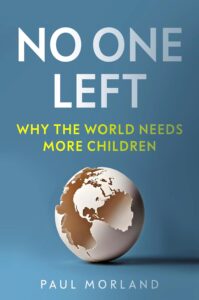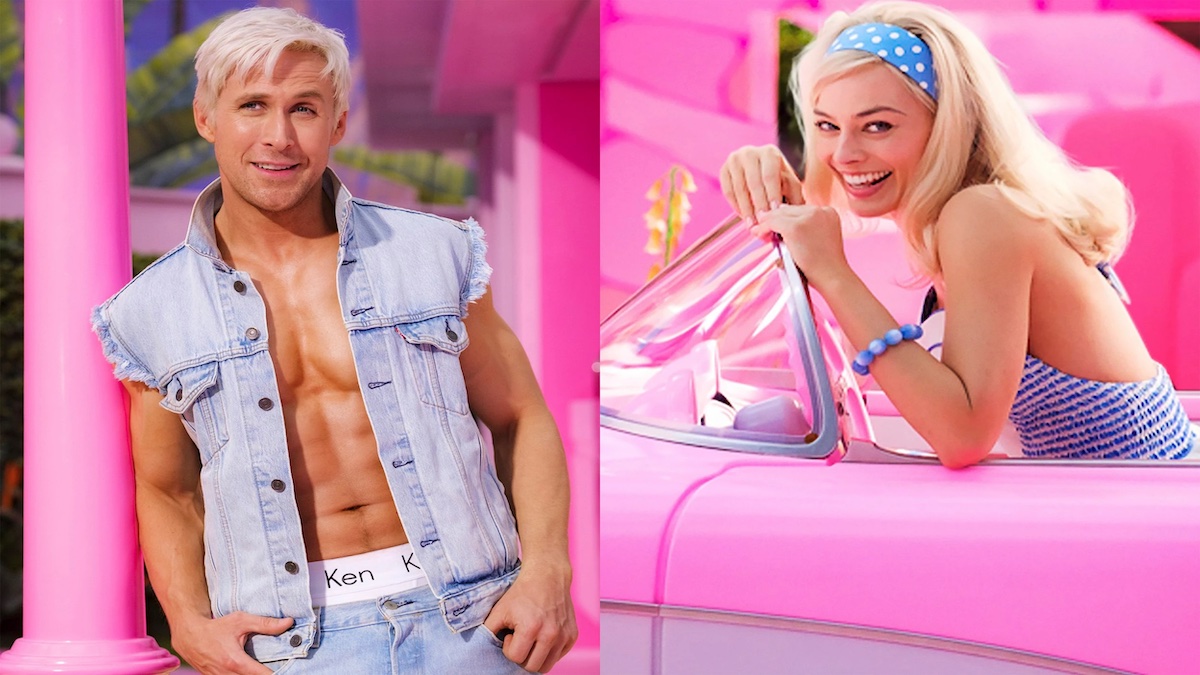Barbie delivered much more than expected this past weekend—and I don’t mean its box office figures. Director and cowriter Greta Gerwig succeeded in making a film that’s not just entertaining but also insightful.
Gerwig’s film serves as a commentary on aspects of modern women’s experiences that deserve more attention, from the emotional impact of sexual objectification, the seeming unpredictability of women’s physiological changes, and the impossible pressures many women shoulder on a daily basis to meet modern expectations. All the while, Gerwig weaves in themes from the doll’s checkered history. Most notably, the doll was inspired by creator Ruth Handler’s desire to provide girls with an alternative to baby dolls—dolls that encouraged girls to bypass motherhood in favor of career-oriented independence.
Some commentators accuse Gerwig of being heavy-handed with feminist messaging or selling out to capitalism, but I see something more subtle. Maybe I’m just drinking the pink kool-aid, but as the editor of a women’s magazine trying to help women embrace who they are and stop trying to meet unrealistic societal standards, I sensed that beyond all the laughs was a genuine wish to help women and girls feel comfortable in their imperfect, human skin again.
Even when life is messy and unpredictable, Barbie tells us, reality—including the reality of motherhood—is still worth embracing.
An Object Lesson
The movie starts with Barbie (Margot Robbie) living in a plastic, perfect Barbieland, complete with her pink dreamhouse and endless Girls Nights. Women hold all major positions of power in government and the professional world, while men, such as Ken (Ryan Gosling) are women’s accessories playing on the beach. When Barbie is unexpectedly confronted with thoughts of death and aging, malfunctions start appearing in her feminist utopia, and she’s directed by a wise Weird Barbie (Kate McKinnon) to travel to the real world to meet the person playing with the doll version of her and help fix the problem at its source.
Barbie and Ken are roller-blading into the real world, and suddenly everyone’s looking at them. It’s impossible to miss Barbie’s newfound awareness of being objectified. Alissa Wilkinson describes the scene at Vox as analogous to when Adam and Eve realize they are naked in the Garden of Eden. When she’s catcalled by a male construction crew, Barbie discovers that, in real life, not everyone respects women. When she speaks with the teen girl who used to play with her, she learns that not everyone respects Barbie. In fact, Sasha (Ariana Greenblatt) blames Barbie for perpetuating “unrealistic physical ideals,” destroying “girls’ innate sense of worth,” and “killing the planet with your glorification of rampant consumerism.”
Meanwhile, in one of the funniest scenes of the film, Ken discovers how men are treated in the real world, which is very different from the superfluous way they’re treated in Barbieland. He believes this is “patriarchy”—loosely defined as something between the unearned notoriety of men + horses—and he becomes determined to bring it back to Barbieland. The sexes have quite the many issues to work through, and I, for one, appreciated the opportunity to laugh out loud about some of them.
I also appreciated the attention to some real-life women’s issues. We are so constantly surrounded by objectifying images of women that many girls grow up believing it’s normal to be seen as a sex object—perhaps even empowering. But objectification harms women, and Gerwig uses the largest platform of her career to bring attention to these almost universal female experiences.
Is Barbie Anti-Male?
Not everyone wants to hear it.
“As bubbly as the film appears, its script is like a grumpier-than-average women’s studies seminar,” Kyle Smith writes in the Wall Street Journal. Smith, like many other conservative commentators, see Gerwig’s depiction of the challenges of women’s experiences as mere grievance-mongering. According to Ben Shapiro at the Daily Wire, Barbie perpetuates a divide between men and women, advocating for a world where the sexes ignore each other.
To be sure, the film does humorously critique shallow behavior in men—through Barbie’s lack of attraction to an unemployed man who’s obsessed with her, for instance, or the non-working, non-committal bro culture that ensues in Ken’s vision of patriarchy. But it does so while satirizing problematic behavior in women, too. Sure, the film is chaotic at times, and not every plotline is tied off with a neat, pink bow. Still, I strained to fathom how these critics saw problematic, anti-male takeaways in the film. Does it have to be an affront to men for women to voice their experiences, even experiences of discomfort at being on the receiving end of objectifying attention from men? Some sex differences can’t be understood until we communicate them. Would men rather stay in the dark as to how women feel?
Respecting the full humanness of each person—including recognizing the other’s experiences and taking care not to treat one sex as less worthy than the other—is not a prescription for sex separatism. Barbie and Ken uniting in marriage in Barbieland might have been a cute, happy ending for the comedy, but Gerwig was going for something else—something Shapiro and others might benefit from pondering.
At National Review, Jack Butler writes that these conservatives are getting Barbie wrong. “The emerging conservative take on Barbie seems to be that it is a shallow, man-hating, and repulsive screed. . . Barbieland is not merely a superficial construct but an entirely satirical one: a kind of post-feminist satire of what feminists imagine a perfect world looking like and of what they imagine male dominance is like.” He goes on: “It is, to be clear, not really a movie about men. But it does not hate them. It is something far different, and far more interesting, than that. Conservatives who think otherwise might not be thinking big enough.” I agree.
It’s flippant to dismiss Gerwig’s work as that of a grumpy feminist (which requires ignoring her prior, nuanced work), and it’s simplistic to bill the film as man-hating for its juxtaposition of patriarchy with matriarchy.
Flipping the male-female roles between the two lands invites viewers to loosen up, stop feeling defensive, and grow in their understanding of the struggles of the opposite sex. There were some pretty direct apologies between the two at the end, including Barbie telling Ken she’s sorry for taking him for granted. What’s more, the film hints that perhaps it’s time to flip the sterile, non-maternal philosophy that the original Barbie toy embodied.
Embracing the Female Body
For a film that starts with little girls smashing baby dolls, this movie contains a lot of positive depictions of motherhood, including a particularly delightful, emotional montage of real-life mothers, babies, and children.
The film ends with Barbie cheerily marching into her first gynecologist appointment. Here, as in so many other moments, Gerwig delivers magic for many female moviegoers, while making certain other audience members cringe. Some may jump at the gynecology reference and think it’s a second-wave push of women toward reproductive “advances” like birth control. I don’t think that’s the case. For one thing, birth control doesn’t actually require a visit to the gynecologist anymore. More to the point, as a doll, Barbie was already sterile, devoid even of external genitalia, as the film humorously notes elsewhere. Now that she’s chosen to be human, she has to confront the hormones, menstruation, and fertility that come with womanhood. Rather than shrinking from that, she’s jumping in gladly.
“It was important for me that everything operated on at least two levels,” Gerwig explained in USA Today. “I knew I wanted to end on a mic drop kind of joke, but I also find it very emotional. When I was a teenage girl, I remember growing up and being embarrassed about my body and just feeling ashamed in a way that I couldn’t even describe. It felt like everything had to be hidden. … And then to see Margot as Barbie, with this big old smile on her face, saying what she says at the end with such happiness and joy,” she continued. “I was like—if I can give girls that feeling of, ‘Barbie does it, too’—that’s both funny and emotional.”
In a world where we’re told to turn off our reproductive systems, a positive outlook toward female biology is somewhat countercultural, even among feminists. “Gerwig is laughing with us, not at us,” Callie Ahlgrim writes for Insider. “To use the film’s own simplified binary, the final line is a gift for the Barbies, not the Kens.”
One person’s simplified binary is another’s timeless reality, and Gerwig unapologetically jumps into the age-old comedy of sex differences. But she’s not just schooling male viewers. She’s got lessons for women and girls as well. Sometimes the truth has to be direct, over-the-top, and much-repeated before it sticks. Growing and aging are key parts of being alive, and we shouldn’t try to erase these parts of life for women. Instead of trying to look perfect all the time, we should get in touch with the larger purpose—what we’re “made for,” to quote Billie Eilish’s fresh vocals in the film’s soundtrack. That requires embracing the unknown and uncontrollable.
After Barbie expresses to Sasha’s mom Gloria (America Fererra) that she’s terrified of change,” Gloria replies: “That’s life; it’s all change.”
An Invitation
In the real world, women are constantly bombarded with advertisements for products that promise to ward off the inevitable bodily changes that come with age. Since the embrace of imperfection and mortality is so central to the film’s plot, Barbie’s heavy beauty merchandising push is off-putting to some anti-commercialism purists. Barbie’s embrace of her cellulite is a key plot point, for example, yet you can buy Barbie branded anti-cellulite lotion. As Jessica DeFino puts it, “Barbie profits from both the feel-good performance of embracing cellulite and wrinkles and the practical tools of erasing them.”
But “things can be both/and,” the New York Times quotes Gerwig saying. “I’m doing the thing and subverting the thing.” It’s certainly troubling if a plastic doll is encouraging some to shell out for unnecessary beauty products or extreme plastic surgery. Nonetheless, anyone who’s seen Barbie can see Gerwig directs Barbie away from plastic and toward humanity, beautiful and imperfect as it is.
Amid the neon cacophony of fun is Barbie’s central epiphany. As Barbie becomes human, female viewers might have an epiphany moment, too, at least momentarily embracing their own humanness and imperfections rather than trying to meet some idealized, impossible standard. Along the way, there are subtle hints at the beauty of accepting all that comes with that—fertility, emotions, even babies. The ongoing mother-daughter plot element and connection of Barbie to Ruth Handler’s daughter Barbara, too, subtly buttress the meaningfulness of motherhood as a vital part of womanhood.
In the end, I think the film is an invitation for women. It’s an opportunity to shed our grown-up fears of imperfection, return to play, and enjoy life—to recall the joy of children.



